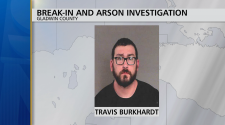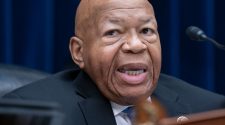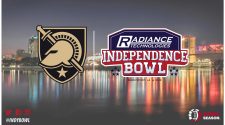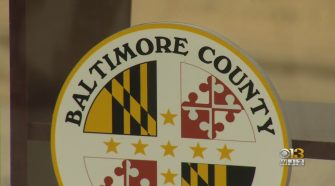A judge has found that a convenience store chain’s advertising practices — luring customers with a low price but limiting it to a few pumps — might be shrewd, clever and even distasteful.
In a 13-page decision released Monday, Lancaster County District Judge Robert Otte ruled in favor of Mark Wilkinson, who owns eight Fat Dogs stores along Interstate 80, from Lincoln to Ogallala.
“Wilkinson’s business practices may be perceived as shrewd and clever,” Otte wrote. “Those practices have and are bound to catch the inattentive consumer. However, the vigilant customer has the opportunity to buy gas at a discounted price relative to other options.”
Wilkinson was sued in 2017 by a coalition of customers, competitors and other store owners, who argued during a nonjury trial in April that he was violating Nebraska law with his deceiving and misleading advertising.
Unsuspecting customers won’t know they have to hunt for the low price posted on the sign, they said. And they might not realize until it’s too late that they’ve paid more than expected.
“It’s typical bait-and-switch,” said state Sen. John McCollister, who testified he stopped at a Fat Dogs near North Platte only to notice the pump price was higher than the sign that had made him stop. He drove away without getting gas, he added.
And Dan O’Neil, whose Quik Stop store competes with Fat Dogs in North Platte, testified that Wilkinson’s practices give the industry, and North Platte, a black eye. He worried it would keep tourists from stopping.
“I have a huge investment in that intersection, and in the community,” O’Neil said during the trial.
Wilkinson and his attorneys argued, and Otte confirmed, that signs on each station’s canopies, dispensers and pumps direct customers to the cheapest gas.
“There is nothing to suggest Wilkinson advertises a product that isn’t available,” attorney Daniel Klaus said during the trial.
Ultimately, Otte agreed, ruling the plaintiffs failed to prove Wilkinson violated the state’s Uniform Deceptive Trade Practices Act or its Consumer Protection Act.
There’s no doubt Fat Dogs customers have paid more than they expected, he wrote. But that wouldn’t happen if they were paying attention.
“Not one witness testified that the signage at issue was unclear, misleading or deceptive,” the judge wrote. “In fact, the witnesses generally testifying at trial agreed that if they had been attentive to the signage and prices displayed that they would have made the intended choice.”




















Federal Judge Reggie Walton Condemned Trump’s Comments About Judge Juan Merchan On CNN